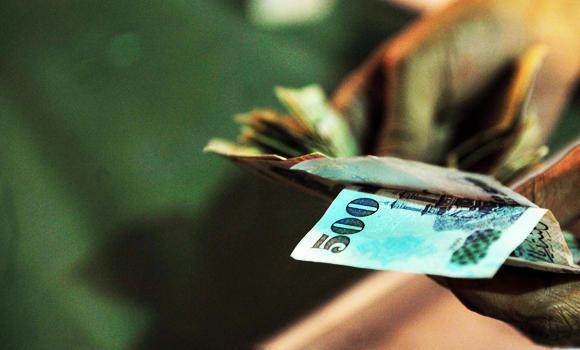
Riyadh, Feb 23: Saudi Arabia’s per capita income rose 27.2 percent from 2010 to 2011 following an increase of 17.1 percent from 2009 to 2010, according to a report by the Saudi Arabian Monetary Agency (SAMA).
Preliminary figures indicate that expenditure on GDP increased by 31 percent to SR 2.239 billion, “including import duties,” during 2011, said the report. This compares to SR 1.709 billion during 2010. The rise was attributed to a 103.3 percent increase in net exports of goods and services during 2011. This translates into a rise from SR 328.6 billion in 2010 to SR 668 billion in 2011.
Meanwhile, Fadl Bu Aynain, an economic expert, told Asharq Al-Awsat that “what matters in these figures is the constituents of GDP, since an increase in GDP, and hence per capita income, is more reliable when there is diversity of production and a dominance of industrial production.”
He added: “When oil revenues dominate the GDP, this gives a skewed view of economic growth. In other words, the rise of oil prices and the increase in oil output have influenced the total GDP. So we can say that without knowing the details of the factors that contribute to GDP, you cannot have a meaningful picture of the economy.”
He explained: “The economy that depends on royalties may cause major problems in the future, unless the growth in GDP is based on diversifying and broadening the base of industrial and service production.
“This will create jobs, increase real per capita income, and create sustained development, through the private sector, in particular. If that does not happen, Saudi Arabia may face major challenges in fulfilling its obligations in the future in case there were substantial changes in oil prices or in the ratio of exports to the total GDP.”
Tal’at Hafidh, secretary-general of the Commission for Orientation and Education in the Banks, said one of the major causes of inflation in Saudi Arabia is “what we call imported inflation, when the prices of imported goods are hiked for various reasons in the country of origin, or when there are extra expenses added on the goods, like an increase in shipping and insurance costs, etc.”






Comments
Add new comment